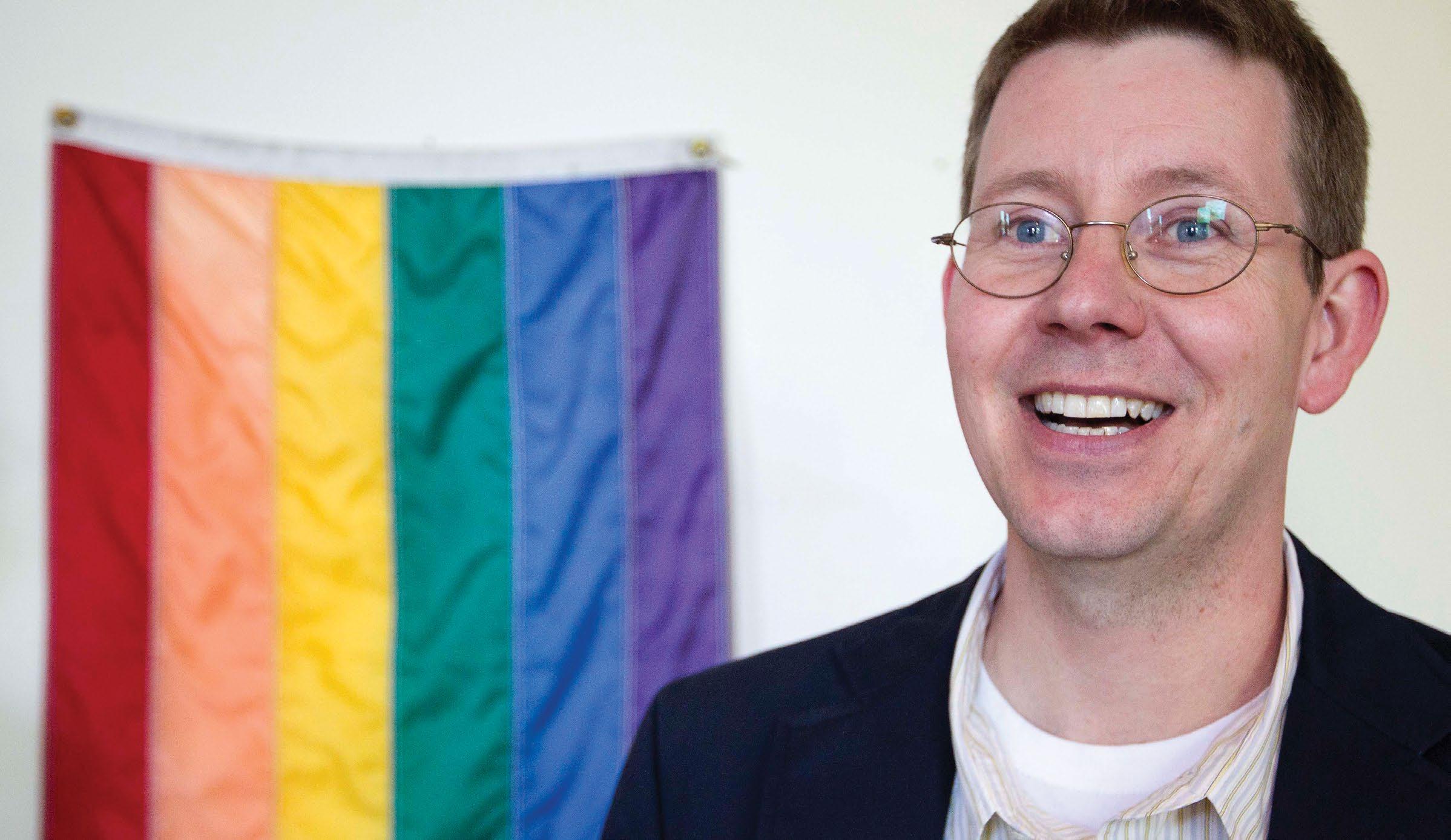hot topic | SEX AND POLITICS
Walking the Line Between
Sex and Politics by Debra Miller
CAPITOL IDEAS
»
JULY / AUG 2012
24
Parents and school personnel contacted Utah Rep. Bill Wright last year expressing concern that Planned Parenthood had posted on its website a curriculum for middle schoolers endorsed by the state Department of Education. Wright said he was alarmed, as he had sponsored the legislation on the “maturation” health education program for middle schoolers and the human sexuality curriculum for high schoolers. “The maturation program was designed for separate conversations with young men and young women,” he said. In addition, the Planned Parenthood website linked to materials on homosexuality that Wright said, “opened the door to the wrong path.” So he met with representatives from the department of education who said they did not endorse the Planned Parenthood curriculum. After nine months, the endorsement language was not removed. That’s how House Bill 363 was born. Wright’s bill would have allowed school districts to choose to drop sex education classes and would have prohibited any teaching about contraception, homosexuality or sexual activity outside of marriage. Wright intended to underscore the abstinence-only language already law in Utah. “To teach anything else opens discussion to other topics,” he told CSG. Many lawmakers, Wright said, were not sure any health or sex education was necessary given the pressure on schools to cover more important curriculum areas. Rep. Jennifer Seelig, a 2010 Toll Fellow, told CSG her constituents were “totally flabbergasted” over the bill. “Abstinence-only education is not consistent with the literature about best practices related to education on reproductive health,” Seelig said. “It is important to adopt science-based, peerreviewed best practices in public policy matters, particularly in issues that have direct impact on reproductive health and even on criminal victimization.” The bill passed both the Utah House and Senate. Pressure against the bill really started after it
landed on Gov. Gary Herbert’s desk. “It wasn’t on everyone’s radar,” Wright said. “The ACLU weighed in and then the local unions weighed in. Then the gay and lesbian community got excited and weighed in.” The Salt Lake Tribune reported that Herbert received nearly 10,000 letters, emails and calls about the bill. Nine opposed the bill for each one who supported it, according to the paper’s analysis of correspondence reviewed under an open records request. Ally Isom, a spokeswoman for the governor, told the Tribune that most of the correspondence was uniquely written as opposed to form letters from an organized campaign. “I’d certainly say the sheer volume creates an impression and one which cannot be ignored,” she told the Tribune. Herbert vetoed the bill saying, “After careful review of existing law and following extensive discussions with stakeholders on both sides of the issue, I am convinced the existing statutory framework respects these two principles (the importance of abstinence and a parent’s right to determine how their children are instructed), while HB 363 simply goes too far by constricting parental options. I cannot sign a bill that deprives parents of their choice.” Seelig praised the veto. “I was glad to know that the governor was responsive to parents,” she said. Wright called the veto “a calculated political decision.”
Planned Parenthood
Education wasn’t the only topic of legislation related to sexuality in the 2012 legislative session. Several states took action to limit state funding for women’s health care to organizations that provide abortions. The issue was highlighted in Texas, where Gov. Rick Perry stands steadfast behind a 2011 legislative vote to block any family planning funds to Planned Parenthood organizations. The law, which took effect March 14, prohibits Planned Parenthood, or any other facility with ties to abortion providers, from delivering cancer screening, contraceptives and basic health care to low-income women under the Medicaid Women’s Health Program. About 130,000 women in Texas are eligible for the program and about 44 percent of them get care at Planned Parenthood clinics.











